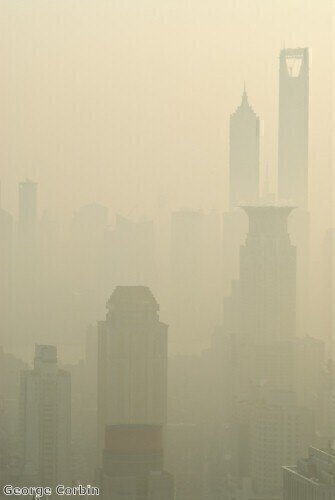-
 Heavy smog could affect China's agriculture
Heavy smog could affect China's agriculture
Air Monitoring
China's air pollution 'similar to nuclear winter'
Mar 04 2014
China has suffered from increasingly bad levels of air pollution, resulting in both health and environment fears. However, scientists have said that the air quality in the country is now so bad that conditions are similar to those that would be experienced in a "nuclear winter", according to scientists.
Researchers in China have suggested that the heavy smog levels caused by air pollution could have a severe impact on the country's food chain. With the lack of sunlight breaking through the thick smog, photosynthesis within plants has been slowed down. This impacts growth of all crops, harming agriculture, which could have an economic impact.
Over the last month many cities in the northern region of the country, including Beijing, have been subjected to a heavy amount of smog, caused by low-lying particulate pollution. On Tuesday (February 25th) Beijing was subjected to levels of PM2.5 pollution that measured at 505 micrograms per cubic metre.
This type of pollution is small enough that it can penetrate the lungs, ending up in the bloodstream. It has also been linked to cardiovascular complications and respiratory illnesses. According to the World Health Organization (WHO) a safe level of PM2.5 particulate pollution is 25.
China has already felt some economic effects of the recent heavy levels of air pollution as fewer tourists have been able to visit the country due to road closures and the grounding of flights. On February 24th, only 11,200 people were recorded as visiting the Forbidden City in Beijing, which is around a quarter of the usual visitors seen at the attraction in a day.
According to He Dongxian, associate professor at China Agricultural University's College of Water Resources and Civil Engineering, if the pollution levels continue to remain this high, the country's agriculture will suffer similar conditions seen during a nuclear winter. She said that sunlight penetration has been cut by around 50 per cent. While the effects may not be immediately felt, this could severely impact future crops.
Digital Edition
IET 34.2 March 2024
April 2024
Gas Detection - Biogas batch fermentation system for laboratory use with automatic gas analysis in real time Water/Wastewater - Upcycling sensors for sustainable nature management - Prist...
View all digital editions
Events
Apr 30 2024 Melbourne, Australia
Apr 30 2024 Birmingham, UK
May 03 2024 Seoul, South Korea
May 05 2024 Seville, Spain
May 06 2024 Minneapolis, MN, USA

















